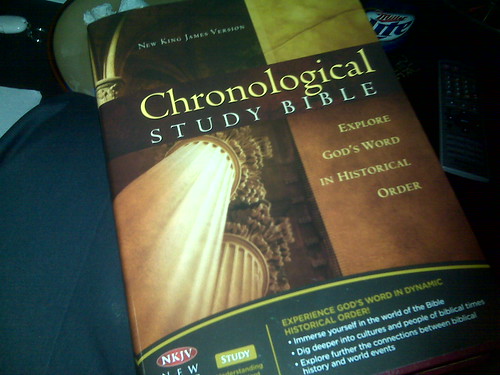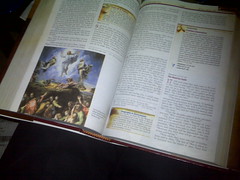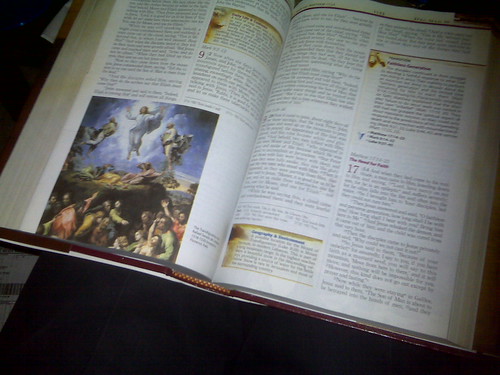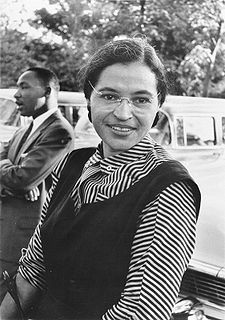A few weeks back I received a copy of Thomas Nelson’s Chronological Study Bible (NKJV).
No lie – I was blown away!
Just skimming through the pages wowed me with the layout and the extensive use of color and imagery throughout the pages.
I’ve since used it several times in preparation for various studies and messages and will say that it’s a great companion for any study.
As a “study Bible” I haven’t been blown away by any particular insights included in the study notes and such but that doesn’t diminish my feelings at all. And to be fully honest and fair about it, I can’t say I’ve read this entire Bible all the way through yet (with our without the notes) — so there are likely countless things still waiting to be discovered.
I was thrown originally by the order of the Gospel letters (where I’ve spent most of my study time). As a Chronological Study Bible, I still expected the letters to remain intact, simply placed in the order they were historically (or at least believed to be) written. I have a copy of The Books of The Bible (TNIV) that’s organized more in that manner — and I’m certain this previous experience with a “chronological Bible” tainted how I expected this Bible to read.
(Side note :: The Books of The Bible focuses a lot more on readability than study — with no chapter or verse deviations and text formatted in one column per page rather than multiple columns),
In comparison to The Books of the Bible, the chronological order is that of the Biblical Narrative, not necessarily the order of the authorship. Like I said, this was a disappointment — at first — but I’ve come to appreciate it as an entirely different resource/tool as I delve further into the text. It helps me see the broader picture of where the various stories of Jesus line up and which authors included which stories, and which ones excluded others.
Along with ordering the text in narrative order, I’ve also come to really appreciate the time line that scrolls above each of the pages. This gives an even broader dimension to studying and helps the reader see a better picture of how various events/texts align themselves within the greater Biblical narrative.
Further study of the Bible showed how the editors worked to carry out the narrative order by intertwining texts like the story of David, with his poetry and songs in the book of Psalms. This gives the reader a better feeling of David’s narrative, with his feelings and thoughts and reflections wrapped around them. I’m looking forward to delving into the Psalms even further with this added resource.
Now if only they just had a version with Eugene Peterson’s translation. 🙂
Here are some additional notes/points from Thomas Nelson ::
- The entire New King James Bible with translators’ notes, arranged in chronological order-the order in which the events and writings actually happened, for absorbing and effective Bible study
- Full-color illustrations of places, artifacts, and cultural phenomena that give the reader a dramatic, “you are there” experience
- Fascinating articles that connect the Bible text to world history and culture
Daily Life Notes that explain how people lived in Bible times - Epoch Introductions and Historical Overviews that provide vivid chronological context
Transition Comments that set the stage and prepare the reader for the biblical text that follows - “Time Capsules” of world history that accompany the Bible text
- Time Panels and Charts that show the flow of Bible history
- In-text and full-page color maps of the biblical world
- A handy scripture finder index that provides rapid access to any passage
- Topical Index and Glossary to facilitate study






